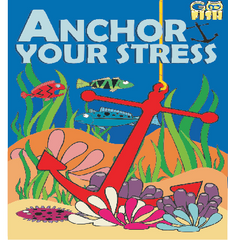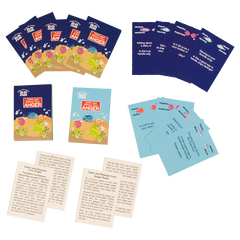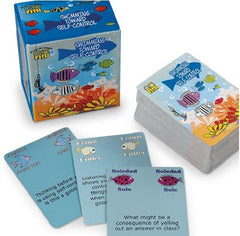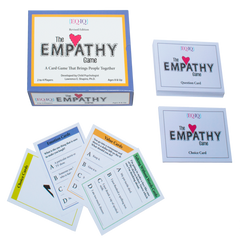Don't Be Difficult Bundle
- Teach children to identify positive and negative consequences for their actions
-
Interactive board game format keeps children engaged
-
Includes Don't Be Difficult Board Game, and Workbook
-
Ages: 6-12
Help children learn the consequences of both positive and negative choices. As children play the game, they find themselves on the "Hard Road." To get back onto the "Right Road," they have to earn positive emotional currency in the form of Kindness, Trust, Respect, and Cooperation. The fun-filled activity workbook reinforces new concepts and highlights positive choices. Recommended for ages 6-12.
Don't Be Difficult Board Game
This game is designed to provide children with the opportunity to experience the negative consequences of choosing the "hard" way and the positive benefits of choosing the "right" way. As children play the game, they find themselves on the "Hard Road." In order to move back onto the "Right Road," they have to earn positive emotional currency (chips) in the form of Kindness, Trust, Respect, and Cooperation. To advance on the "Right Road" and win, players must learn ways to avoid difficult behaviors and to accept the consequences of their choices and actions. For 2-6 players.
Don't Be Difficult Workbook by Lawrence E. Shapiro, Ph.D. & Hennie M. Shore. A workbook to help children consider the consequences of both positive and negative choices. Should you take the "right road" to solving a conflict or the "hard road" which will ultimately make your life more difficult? That is the question that this workbook asks children to ponder, as they learn about six kids who are faced with a variety of common problems. In each story, a child is confronted with a specific problem, and the reader is asked to write in both positive and negative ways to solve the problem. In addition, the reader is asked to consider the consequences of both positive and negative choices and the principles he/she could use to govern his/her choice. Finally, in each exercise, the reader is asked to consider how this principle might be applied to his/her own life. Recommended for ages 6-12.






